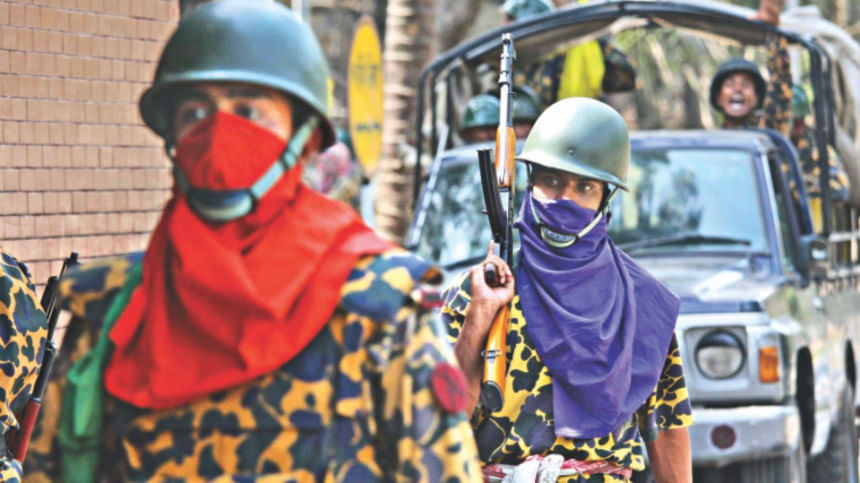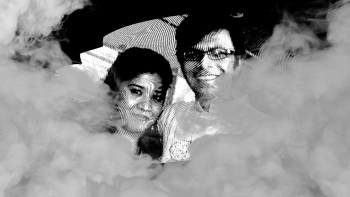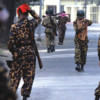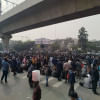Unanswered questions about the Pilkhana massacre

There are renewed calls, and rightly so, for a fresh inquiry into the BDR killings. Newer allegations of actions and inactions are emerging from various sources, some claiming to be direct witnesses who had heretofore not dared to speak publicly. Even the former chief of army staff (CAS) has tried to offer an excuse that certainly doesn't wash with the public.
February 25 remains a day of calumny, ignominy and anguish, with the brutality perpetrated by the mutineers and killers unmatched by anything in recent memory. It is also unparalleled in the duplicity of certain people in important positions within the administration. Time cannot heal the pain, and the earthly supplements given to the victims' families are but a palliative that may put only temporary gloss over the wound.
Let's put the tragic statistic in perspective. On that day and the day after, 57 of the best and brightest officers of the Bangladesh army were brutally put down. Thirteen others were also killed in the process. Compare that with the number of officers martyred during the Liberation War—over the course of nine months, we lost 47 officers.
But why bring up this matter after 15 years? Has the issue not run its course? With an official inquiry completed, its findings (incomplete though) and a raft of recommendations made public, one would assume that the matter would be behind us. It bears mention that the inquiry report in its entirety has not been made public, and the original version has been heavily redacted.
The killings, along with the mutineers' actions in the following two days, suggest a well-thought-out event that stemmed from expert planning. As long as the real motive and mastermind remain a mystery, this matter cannot be considered closed, and despite ongoing legal proceedings, further investigation is warranted.
Admittedly, the mutineers have been tried, with many BDR members sentenced to various prison terms. Some are even out of jail after completing their sentences, while a large number are facing the death sentence. But like me there are many, and not just within the military fraternity, who are still in the dark about many aspects of the case.
The first question is whether any action has been taken on the primary recommendation of the Anis-uz-Zaman committee, that further investigation is needed to uncover the true mastermind behind the incident. This is crucial, as even the committee admitted that "the real cause and motive behind the barbaric incident could not be established beyond doubt."
The current administration should immediately follow up on the committee's recommendation and conduct further investigation to get to the bottom of the mutiny. The "dal-bhat" explanation is too trite to be accepted as the causative factor of the rebellion that had matched, in some aspects, the Pakistani brutality of 1971. It may have been a secondary factor, one exploited by those orchestrating the mutiny.
The handling of the episode itself merits thorough scrutiny, although some may take issue with my suggestion. We cannot ignore the fact that the BDR jawans also revolted in 1991, and the general opinion is that the matter was handled too leniently. The leaders of the 1991 revolt got off lightly, and that may have had a part in this mutiny too. The purpose of an investigation into an event like February 25, 2009, is not only to identify and punish the perpetrators but also to learn from the mistakes and shortcomings in how the situation was managed. This will ensure that similar mistakes are not repeated in the future and that such events can be anticipated and swiftly contained.
The strategy employed to handle the situation revealed the ineptness and lack of professionalism of the planners at the helm. The handling of the mutiny militarily was amateurish, to say the least. Time was of the essence, and unfortunately, military commanders lost sight of that—or was it deliberate inaction? I wonder.
Former army chief Moin's excuse of following the chain of command betrays his puerility at its worst. If he had been worth his salt, upon learning of the killings of officers and their families, he would have immediately dispatched troops to BDR HQ to save lives, informing his superiors afterward. Under such circumstances, waiting for permission to move troops was not mandatory. Moin, along with those above him, including the then prime minister and others in positions of responsibility, have blood on their hands and must be brought to justice.
Calling the mutineers to the negotiation table—with the head of government no less—after they had already killed many officers and their families reeks of conspiracy. This method for dealing with mutineers is unheard of. Negotiating, and asking the mutineers to surrender their weapons after 52 of the 57 officers had already been killed, displays a pathetic ignorance of how to manage such a critical situation, where a large number of officers and their families were being held hostage.
The argument of avoiding collateral civilian casualties, given that the BDR complex was surrounded by civilian buildings, is weak. My riposte to that argument, which I have maintained since my first comment on this issue in 2009, is that while we will never know the consequences of military action, the cost of inaction is clear—it led to the deaths of 57 officers and 13 others, leaving 57 widows and many young children to live with painful memories.
Another example of incompetence was the so-called surrender of weapons to the home minister. Why did the security forces not immediately enter the BDR complex to secure the area once the mutineers had surrendered? It is now known that several officers were killed by the mutineers in the early hours of February 26. And why was the rear gate of the BDR complex left unguarded, allowing many mutineers to escape with weapons under the cover of darkness?
One wonders whether the administration has delved into the performance of the intelligence agencies. Did none of them get wind of what was about to happen? With so many of them deployed in sensitive areas and units, how did none of them pick up on any signs of unrest?
The conversations between the CAS, the then PM and the intelligence agency heads must be scrutinised. Many unknown facts would likely emerge. Alleged complicity of political leaders in the killings must be investigated, as must be the possible involvement of foreign hands in the massacre. Only when the true masterminds behind the BDR mutiny are identified and brought to justice can we draw a conclusion to the matter.
Brig Gen Shahedul Anam Khan, ndc, psc (retd) is a former associate editor of The Daily Star.
Views expressed in this article are the author's own.
Follow The Daily Star Opinion on Facebook for the latest opinions, commentaries and analyses by experts and professionals. To contribute your article or letter to The Daily Star Opinion, see our guidelines for submission.

 For all latest news, follow The Daily Star's Google News channel.
For all latest news, follow The Daily Star's Google News channel. 









Comments